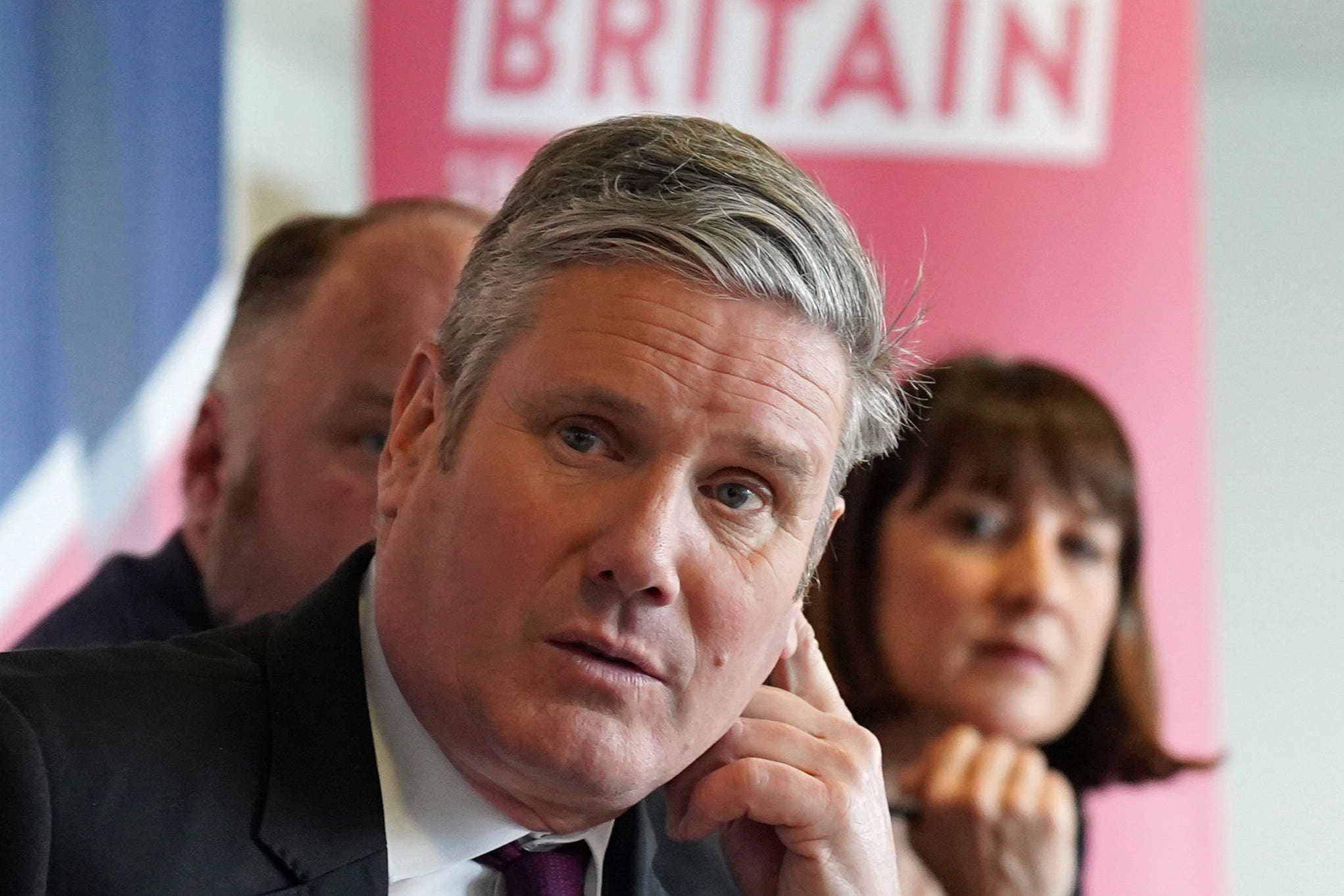This ‘law of politics’ predicted Labour’s downfall. Now it could hold the secret to the next election
Are Keir Starmer and Rachel Reeves ‘credible’ compared with Rishi Sunak and Jeremy Hunt? asks John Rentoul


Chris Mullin, the Labour former minister, is one of the finest diarists of modern politics. His latest volume, covering the period since he stood down as an MP in 2010, is published this week and serialised exclusively in The Independent.
Mullin is waspish, independent-minded and indiscreet. Although he was one of Tony Benn’s closest friends, he was aware of his hero’s limitations. In the latest volume, he recounts a visit in 2014 to the dying Benn, who said: “My life has been a failure.” They both knew it was true, but Mullin felt obliged to disagree.
Mullin is also a sympathiser of Jeremy Corbyn, a fellow Bennite, and aware of his greater limitations, while at the same time being an admirer of Tony Blair. The diaries are punctuated by comments that “The Man” has given an interview, often making the case for EU membership, which reminded Mullin how good he was.
Mullin was less keen on Gordon Brown, but was still surprised when he met Deborah Mattinson at a Christmas party in December 2010. Mattinson, who is now Keir Starmer’s director of strategy, had worked for Brown as a pollster, but had fallen out with him. She wrote a book called Talking to a Brick Wall, which was about Labour’s inability to listen to the voters but which may also have been a comment on her relationship with the most recent Labour prime minister.
She asked Mullin: “Why didn’t you get rid of him?” In Mullin’s last few months as an MP, Patricia Hewitt and Geoff Hoon had tried to launch a challenge to Brown’s leadership, but too few MPs supported it. “If you had, Labour would still be in government.”
Mullin said: “Surely January this year would have been too late.”
Mattinson disagreed: “No, all new leaders enjoy a bounce during their first three months and that would have brought you up to April or May, the month of the election. Labour would have won.”
Mullin thought this overlooked one important point: “With whom should we have replaced him?”
She replied: “Anyone. You even.”
Mullin’s question invoked what I call Nick Brown’s Law, although it is actually a late 19th-century US maxim: “You can’t beat somebody with nobody”. It was one of Gordon Brown’s great advantages when he became prime minister in 2007, as Nick Brown, his ally and chief whip, pointed out to me at the time: the Blairites didn’t have a candidate.
By the end of his time as prime minister, though, Brown was more vulnerable than many people – including Mullin – realised; I think Mattinson was right that Labour MPs could and should have deposed him.
Nick Brown appears in Mullin’s pages four years later, in October 2014, when Ed Miliband was about to lead Labour into the next election. “I ran into Nick Brown,” Mullin writes. “How does he rate Labour’s chances?”
Brown told him: “We will probably lose. Our numbers one and two are not credible compared to the incumbents. The economy is picking up. Much of what Ed Balls said has proved wrong. The two Eds don’t get on.”
That is quite an impressive summary of the political outlook, delivered in a chance encounter on the Embankment. Brown made two other points: “Ed Miliband is a nice chap and would probably make a good university lecturer.” That was an understandable assessment of someone who had sacked him as chief whip. Nick Brown also told Mullin that “most Tory MPs think their party will lose”.
But they were wrong and Nick Brown was right. So if we apply his analysis then to the situation now, what does it tell us? Are Keir Starmer and Rachel Reeves “credible” compared with Rishi Sunak and Jeremy Hunt? I think so; at least, they are more evenly matched for credibility than Miliband and Balls against David Cameron and George Osborne.
What is more, Starmer and Reeves do seem to “get on” better than the two Eds. They either agree on the strategy, such as it is, or are better than the two Eds at concealing their differences.
The big question is whether the economy will be “picking up” by the time we are seven months away from an election. We should return to revisit what I might call Nick Brown’s Second Law in March next year.






Join our commenting forum
Join thought-provoking conversations, follow other Independent readers and see their replies
Comments